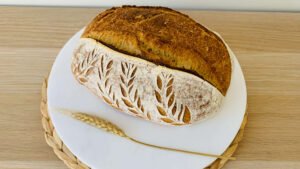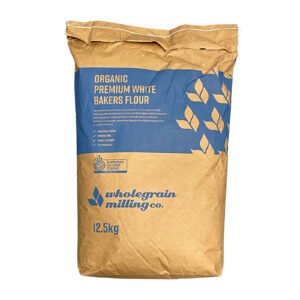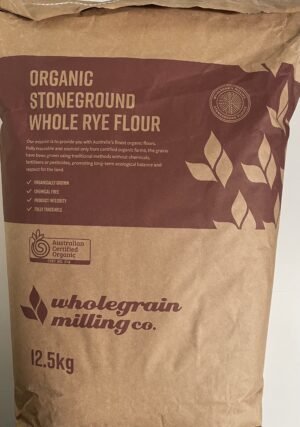The global influence of sourdough in modern baking is a testament to its enduring appeal and versatility.
Having previously delved into the rich history of sourdough, it’s evident that this ancient art of breadmaking is not only steeped in tradition but also continues to be a revered and innovative force in contemporary baking.
Sourdough’s unique characteristics and the rising interest in artisanal and health-conscious foods have cemented its place in kitchens and bakeries worldwide, making it a significant player in the global culinary scene.
Razor Blades for Bread: Tips for Proper Use.
Table of Content
Sourdough’s Role in Artisanal Baking Revival
A key aspect of the global influence of sourdough is its central role in the revival of artisanal baking. In a world increasingly dominated by industrially produced foods, sourdough stands out as a symbol of craftsmanship and natural baking.
Artisan bakers, drawn to the authenticity and hands-on approach of sourdough breadmaking, have been at the forefront of this revival. This resurgence is not just about nostalgia but a conscious shift towards quality, flavor, and the nutritional benefits of naturally fermented bread.
Sourdough’s complex flavor profile and unique texture make it a favorite among artisan bakers and discerning consumers, driving its popularity in farmers’ markets, specialty bakeries, and high-end restaurants around the world.
Health and Nutritional Trends Influencing Sourdough Popularity
Another factor in the global influence of sourdough is its alignment with health and nutritional trends.
The increased awareness of gut health and the benefits of fermented foods have propelled sourdough into the spotlight.
Unlike bread made with commercial yeast, sourdough undergoes a slow fermentation process, which can make it more digestible and lower in gluten.
These characteristics appeal to health-conscious consumers and those with dietary restrictions, such as gluten sensitivity. Additionally, sourdough’s lower glycemic index and prebiotic content contribute to its growing popularity among those looking to maintain a healthier diet without sacrificing taste.
Cultural Adaptations and Innovations
The global influence of sourdough extends to its adaptability and the cultural innovations it inspires in modern baking. Sourdough’s basic ingredients – flour, water, and salt – lend themselves to a myriad of regional variations and creative interpretations.
Bakers around the world are incorporating local grains, flavors, and techniques, producing unique sourdough breads that reflect their cultural heritage and culinary creativity.
This versatility has led to a global sourdough movement, where traditional methods meet modern innovation, resulting in a diverse range of sourdough breads that cater to an array of tastes and preferences.
The global influence of sourdough in modern baking is a remarkable story of resilience, adaptability, and renewed appreciation.
From its role in the artisanal baking revival to its alignment with health trends and cultural adaptations, sourdough continues to make a significant impact on the culinary world. It not only connects us to our past but also leads us towards a more flavorful, healthful, and diverse baking future.
Sourdough’s legacy, therefore, is not just maintained but dynamically evolved in the hands of bakers and enthusiasts worldwide.






